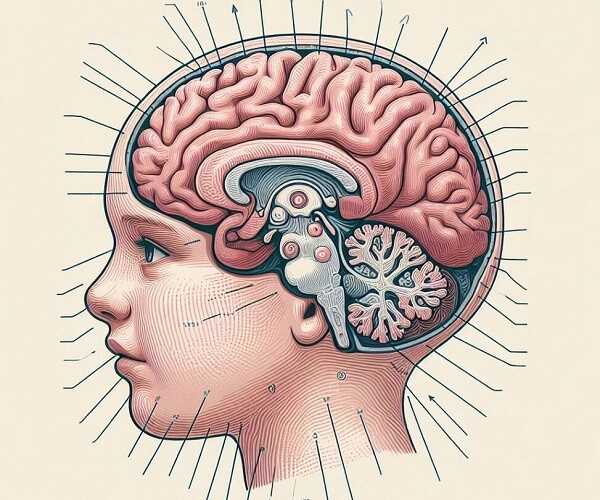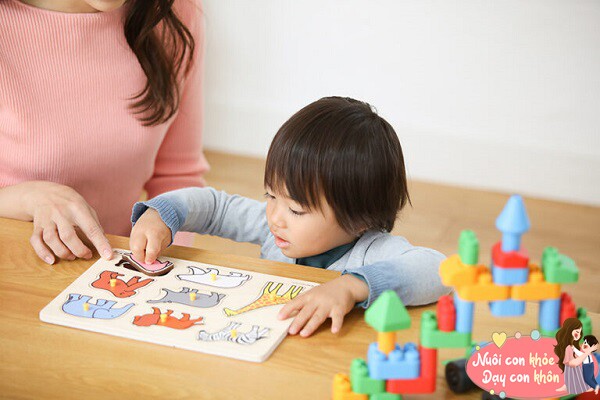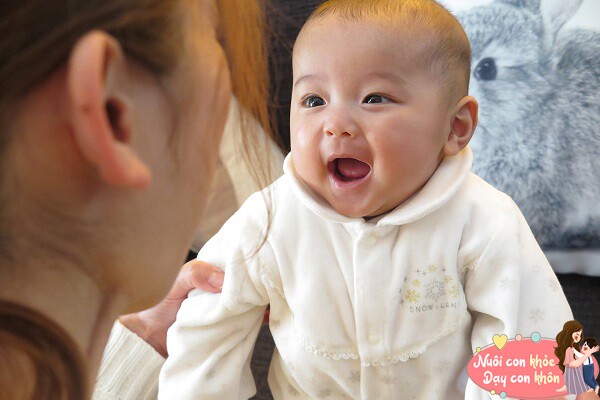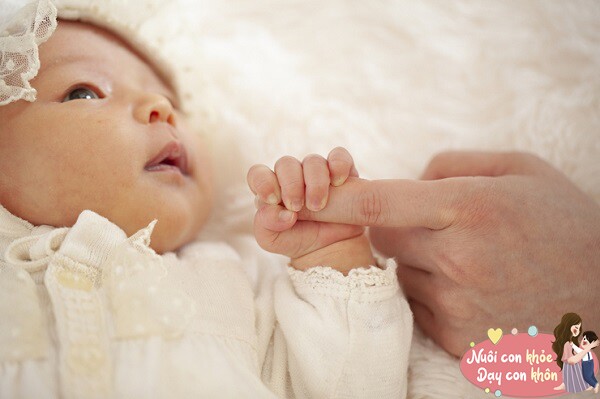Understanding brain development in children allows parents to create a rich and safe environment for their little ones to explore and learn naturally.
According to experts, there are five fascinating facts about brain development in newborns that parents should be aware of.


A baby’s brain is twice as active as an adult’s
Interestingly, the brains of children under three years old are twice as active as those of adults. This means that children are receiving, processing, and learning information faster than ever.
During this stage, the brain develops rapidly, forming millions of new neural connections each day. This reflects superior learning abilities and natural knowledge and skill acquisition.
This period is the golden time for forming neural connections; therefore, providing a stimulating and rich environment will enhance children’s cognitive development.
Every experience, from listening to music and reading books to playing and interacting with adults, contributes to building a solid foundation for children’s intellectual growth.
Moreover, when children are encouraged to engage in activities such as cooking, painting, or exploring nature, they develop their intellectual, emotional, and social skills. Interacting with peers also helps children hone their communication and learning abilities.

A baby’s brain is twice as active as an adult’s.

Stress affects the rate of brain development in newborns
Research has shown that infants’ stress levels increase with shouting in the home. Babies are highly sensitive to their surroundings and can perceive adults’ emotions.
A newborn’s brain develops rapidly in the early years and is susceptible to changes in family dynamics. When shouting, conflict, or stress occur, infants perceive the sounds and sense the emotional vibrations from adults, causing anxiety and unease.
Children tend to react to their environment by withdrawing, crying, or displaying anxious behaviors. If this persists, it can impact their psychological development, leading to more severe issues such as anxiety disorders or depression later in life.
Therefore, creating a peaceful and safe environment is essential for their growth. A harmonious living space where children feel loved and accepted is ideal. Parents should consider establishing communication guidelines within the family, encouraging gentle speech and mutual respect.

Children who are talked to frequently learn about 300 words by the age of two
Studies indicate that children who are frequently engaged in conversation know about 300 more words by the age of two compared to those with less interaction. This highlights the importance of language interaction during the early years when the brain is rapidly developing.
Chatting, reading, and singing to children help expand their vocabulary and stimulate intellectual development and future communication skills.
When parents regularly converse with their children, they introduce new words, teach them how to use language in different contexts, and hone their listening and responding skills.
Moreover, through reading, children are exposed to a rich vocabulary, discover diverse stories, and expand their imagination and creativity. Engaging stories also teach children about concepts, values, and life lessons.

Children who are talked to frequently learn about 300 words by the age of two.

Newborns decode attention through eye contact
Infants can decode what they should pay attention to (or not) by following the gaze of their caregivers. When an adult looks at an object, the baby will follow their gaze and react accordingly.
This demonstrates sensitivity in perception, an essential part of the learning process. By observing the adults’ eye movements, infants learn to identify what is important and form their initial connections with the world.
Parents should be mindful of how they interact with their children. When adults show enthusiasm or interest in an object, it encourages children to explore and learn more. Conversely, if adults display disinterest or indifference, children’s natural curiosity may diminish.
Additionally, children learn to recognize others’ emotions through eye contact and facial expressions. When children see adults looking at each other with loving eyes or expressing happiness, they learn to recognize and express positive emotions.

Newborns decode attention through eye contact.

Hugging is crucial for brain development
Hugging releases growth hormones and creates a sense of security. Warm embraces make children feel loved and cared for, stimulating the production of oxytocin, the hormone associated with bonding and emotional development. Regular hugging and cuddling support brain and emotional growth.
Understanding infant brain development helps parents adopt suitable caregiving and parenting approaches. Creating a loving, safe, and stimulating environment significantly contributes to brain development and maximizes potential during this critical stage.
|
Nuvi Grow with the Nuvi Power formula contains the golden trio of nutrients: Calcium, Vitamin K2, and D3, researched by the Nutifood Nutrition Research Institute of Sweden – NNRIS, to help activate and optimize children’s potential for height and intelligence: Calcium strengthens bones; Vitamin D3 aids in calcium absorption from food into the bloodstream; Vitamin K2 directs Calcium to the bones. Nuvi Grow also contains DHA, Lutein, and Taurine, which support brain development and enhance memory and learning abilities. Three glasses of Nuvi Grow daily help your child grow taller and smarter with confidence.
|






































